Information Visualization, Second Edition: Perception for Design
4.5
بر اساس نظر کاربران

شما میتونید سوالاتتون در باره کتاب رو از هوش مصنوعیش بعد از ورود بپرسید
هر دانلود یا پرسش از هوش مصنوعی 2 امتیاز لازم دارد، برای بدست آوردن امتیاز رایگان، به صفحه ی راهنمای امتیازات سر بزنید و یک سری کار ارزشمند انجام بدینکتاب های مرتبط:
کتاب 'Information Visualization, Second Edition: Perception for Design'
کتاب 'Information Visualization, Second Edition: Perception for Design' نوشته کالین ور (Colin Ware)، یکی از معتبرترین منابع در زمینه تجسم اطلاعات (Information Visualization) و طراحی بر اساس اصول ادراک است. این کتاب به بررسی نحوه پردازش اطلاعات توسط انسان میپردازد و ابزارها و تکنیکهای مفهومسازی دادهها را با توجه به اصول روانشناسی شناختی و ادراک بصری معرفی میکند. اگر شما در زمینه طراحی اطلاعات، دادهکاوی، UX Design، یا ساخت داشبوردهای اطلاعاتی فعال هستید، این کتاب یک منبع بینظیر برای شماست.
خلاصهای جامع از محتوای کتاب
کتاب 'Information Visualization' بر اهمیت استفاده صحیح از تجسم دادهها و نقش آن در تصمیمگیریهای پیچیده متمرکز است. کالین ور با بهرهگیری از دانش خود در زمینههای علوم شناختی، طراحی و روانشناسی، راهنمای جامعی ارائه داده که چگونگی تبدیل مجموعه عظیمی از دادهها به تصاویری ساده و مفهومی را توضیح میدهد. او در این اثر نشان میدهد که چگونه شناخت فرایندهای ادراکی (مثل توجه، حافظه، و درک رنگها) در بهبود طراحی بصری به ما کمک میکند.
این کتاب در چندین فصل به بررسی موضوعاتی همچون اصول طراحی بصری، استفاده از رنگها، نمودارها، دیاگرامها و تعامل انسان و کامپیوتر میپردازد. هر فصل با مثالهایی کاربردی و تصاویر گرافیکی همراه است تا مباحث بهطور عملی مورد بررسی قرار گیرد.
نکات کلیدی کتاب
- شناسایی چگونگی تأثیرگذاری تصاویر و گرافیکها بر درک اطلاعات توسط کاربران.
- اهمیت توجه به اصول ادراکی در طراحی بصری.
- بررسی نحوه استفاده از ابزارهایی مانند Gestalt، استفاده دقیق از فضاها و سلسله مراتب بصری.
- چگونگی استفاده از تکنیکهای تجسم دادهها برای فهم بهتر موضوعات پیچیده.
- ارائه اصول عملی برای طراحی سیستمهایی که با دادههای بزرگ کار میکنند.
جملات معروف از کتاب
"The purpose of Information Visualization is not just to make data beautiful; it’s to empower users to understand complex information."
"Design is a conversation between the data, the designer, and the end-user."
چرا این کتاب اهمیت دارد؟
در دنیای کنونی که حجم اطلاعات بهطور چشمگیری در حال افزایش است، نیاز به ابزارهایی که بتوانند این دادهها را بهصورت قابل فهم و بصری ارائه کنند بیش از گذشته احساس میشود. کتاب 'Information Visualization, Second Edition: Perception for Design' به شما کمک میکند تا علاوه بر یادگیری اصول و تکنیکهای مختلف طراحی اطلاعات، بتوانید از ابزارهای مرتبط برای سادهسازی پیچیدگیها و افزایش بهرهوری استفاده کنید.
همچنین این کتاب به دلیل بهرهگیری از مبانی علمی و ارائه مثالهای واقعی، اعتماد زیادی در میان طراحان اطلاعات و دانشمندان داده به دست آورده است. مطالعه آن باعث میشود که شما بهتر بتوانید نیازهای کاربران خود را بشناسید و ابزارهایی ارائه دهید که تأثیرگذاری بیشتری داشته باشند.
Introduction to 'Information Visualization, Second Edition: Perception for Design'
'Information Visualization, Second Edition: Perception for Design' by Colin Ware is a cornerstone text for anyone involved in making sense of complex information through visual means. Rooted in cognitive science and perceptual psychology, this book explores the rich interplay between human perception and design, offering invaluable insights for professionals in fields ranging from data science to user experience design. Updated in its second edition, it remains an indispensable guide for both beginners and seasoned practitioners aiming to optimize how visual information is presented and understood.
Detailed Summary of the Book
The book delves deep into the intersection of human perception and information visualization, asking the fundamental question: how can we design visual representations of data in a way that aligns with the strengths and limitations of the human visual and cognitive systems? Divided into carefully structured sections, the text introduces foundational concepts related to human visual perception, including attention, pattern recognition, color theory, and spatial relationships.
Early chapters explore how the human brain processes visual information, detailing the sciences of perception and attention. Understanding how people notice patterns, focus on objects, and interpret colors is critical to designing effective visualizations. The book then transitions into practical facets of visualization, such as best practices for creating graphs, charts, maps, and interactive designs. Each design principle is underscored by real-world applications and scenarios, making it relevant across diverse industries and contexts.
The strength of this book lies in the way it bridges theory and practice, equipping readers with a scientific understanding of visual perception while also providing them with actionable strategies. By combining cutting-edge research with case studies, Ware ensures that readers grasp not just the "what" of information visualization, but also the "why" behind effective design choices.
Key Takeaways
- The human visual system plays a pivotal role in how information is processed and understood, and visualization design must work in harmony with these cognitive processes.
- Color, layout, patterns, and spatial positioning greatly influence how effectively we perceive and interpret data.
- Interactive visualizations allow users to explore complex data dynamically, making it easier to uncover insights.
- Good visualizations aren't just about aesthetics—they must prioritize clarity, simplicity, and relevance to the target audience.
- The principles of perception are universally applicable, whether you're designing a dashboard, an infographic, or a dense scientific data representation.
Famous Quotes from the Book
"To design effective visualizations, one must first understand how perception works—only then can design guide the viewer’s understanding."
"Visualization should not demand effort from viewers; it should uncover the underlying structures and patterns effortlessly."
"A well-designed visualization is not just a picture—it is a cognitive tool that enhances human comprehension."
Why This Book Matters
In an age where data has become ubiquitous, the challenge lies not in gathering information but in presenting it in ways that are clear, engaging, and actionable. This book addresses this challenge by emphasizing how design rooted in perceptual psychology can transform raw data into human-understandable visual narratives.
Whether you're a data analyst, designer, scientist, or business professional, the principles in this book can be universally applied to improve communication, decision-making, and storytelling. Unlike other books that only focus on software or tools, 'Information Visualization, Second Edition' prioritizes a knowledge-based approach to visualization, ensuring the lessons remain relevant even as visualization tools continue to evolve. This focus on principles rather than tools makes it a timeless guide.
Ultimately, Colin Ware reminds us that visualization is not just about presenting data; it is about empowering people to see, understand, and act. This book inspires a deeper appreciation of the design process and equips readers with the scientific underpinnings needed to excel in the increasingly vital field of information visualization.
دانلود رایگان مستقیم
شما میتونید سوالاتتون در باره کتاب رو از هوش مصنوعیش بعد از ورود بپرسید
دسترسی به کتابها از طریق پلتفرمهای قانونی و کتابخانههای عمومی نه تنها از حقوق نویسندگان و ناشران حمایت میکند، بلکه به پایداری فرهنگ کتابخوانی نیز کمک میرساند. پیش از دانلود، لحظهای به بررسی این گزینهها فکر کنید.
این کتاب رو در پلتفرم های دیگه ببینید
WorldCat به شما کمک میکنه تا کتاب ها رو در کتابخانه های سراسر دنیا پیدا کنید
امتیازها، نظرات تخصصی و صحبت ها درباره کتاب را در Goodreads ببینید
کتابهای کمیاب یا دست دوم را در AbeBooks پیدا کنید و بخرید
1183
بازدید4.5
امتیاز0
نظر98%
رضایتنظرات:
4.5
بر اساس 0 نظر کاربران
Questions & Answers
Ask questions about this book or help others by answering
No questions yet. Be the first to ask!
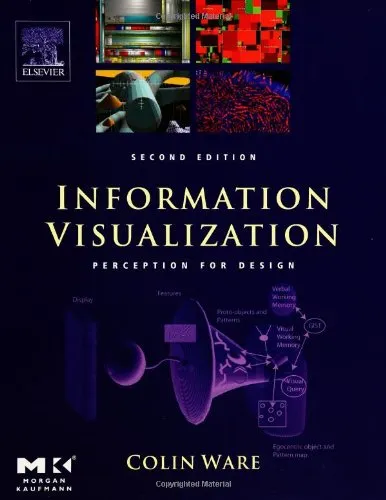

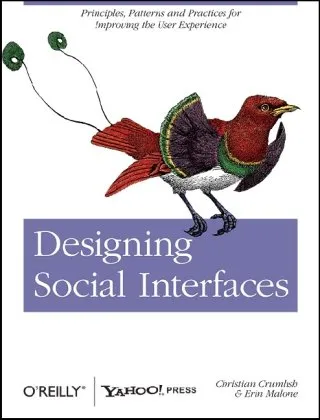
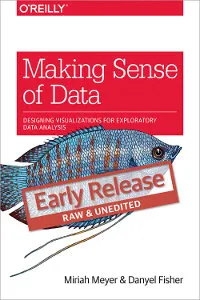



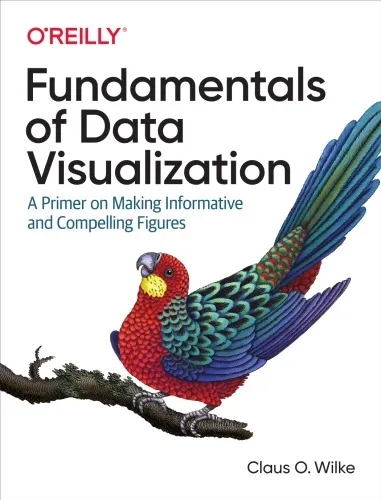
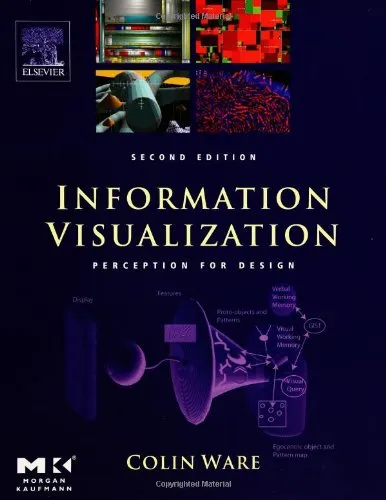
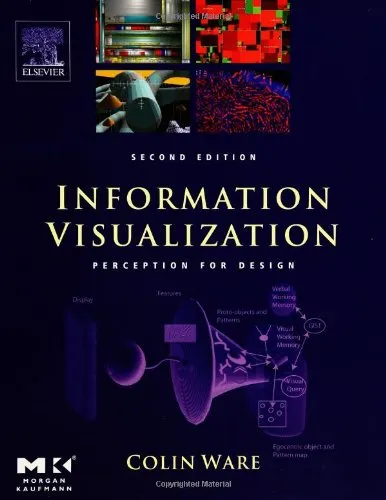

![Good Charts, Updated and Expanded: The HBR Guide to Making Smarter, More Persuasive Data Visualizations [Team-IRA]](https://s3.refhub.ir/images/thumb/Good_Charts__Updated_and_Expanded__The_HBR_Gu_31517.webp)


